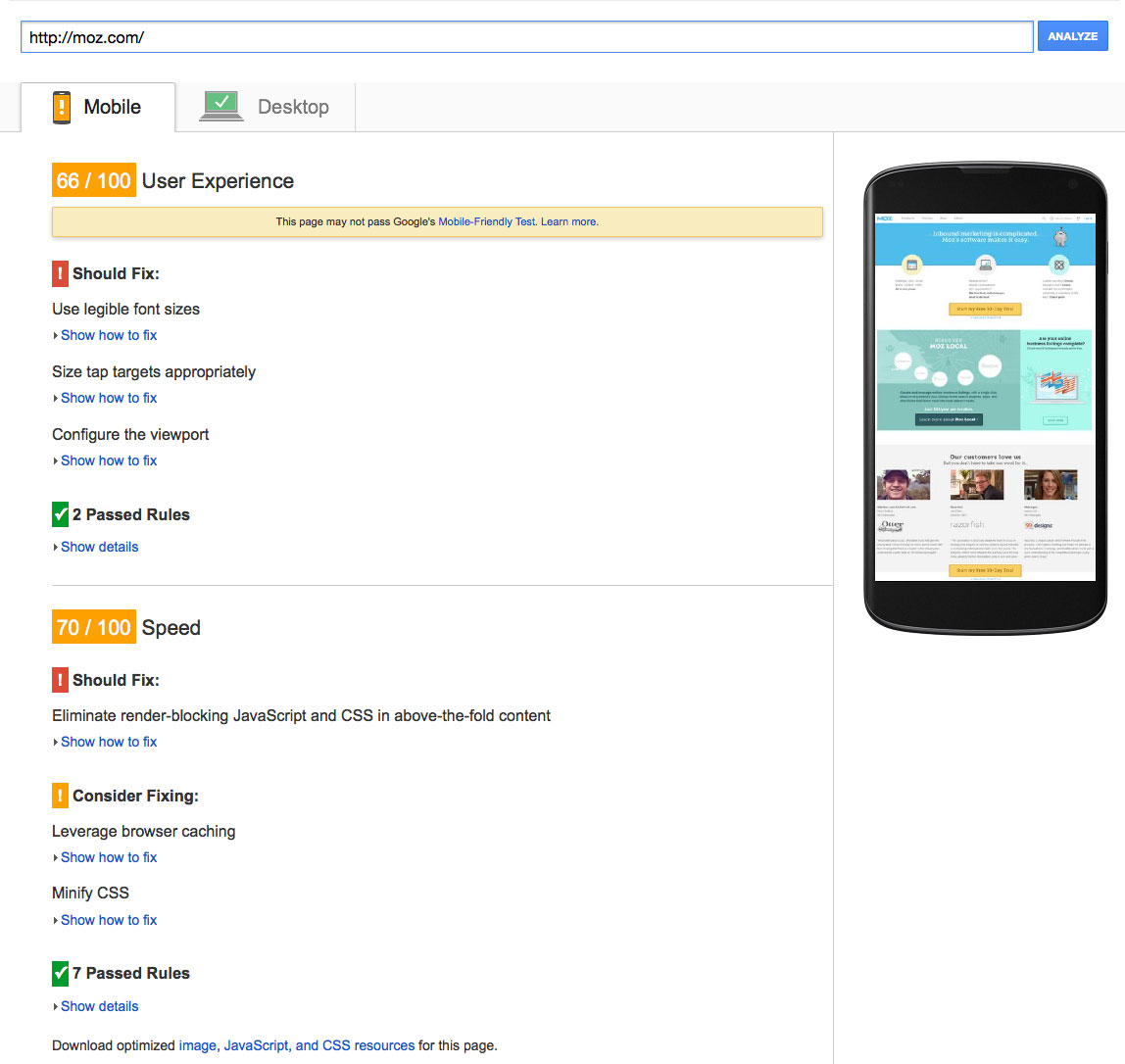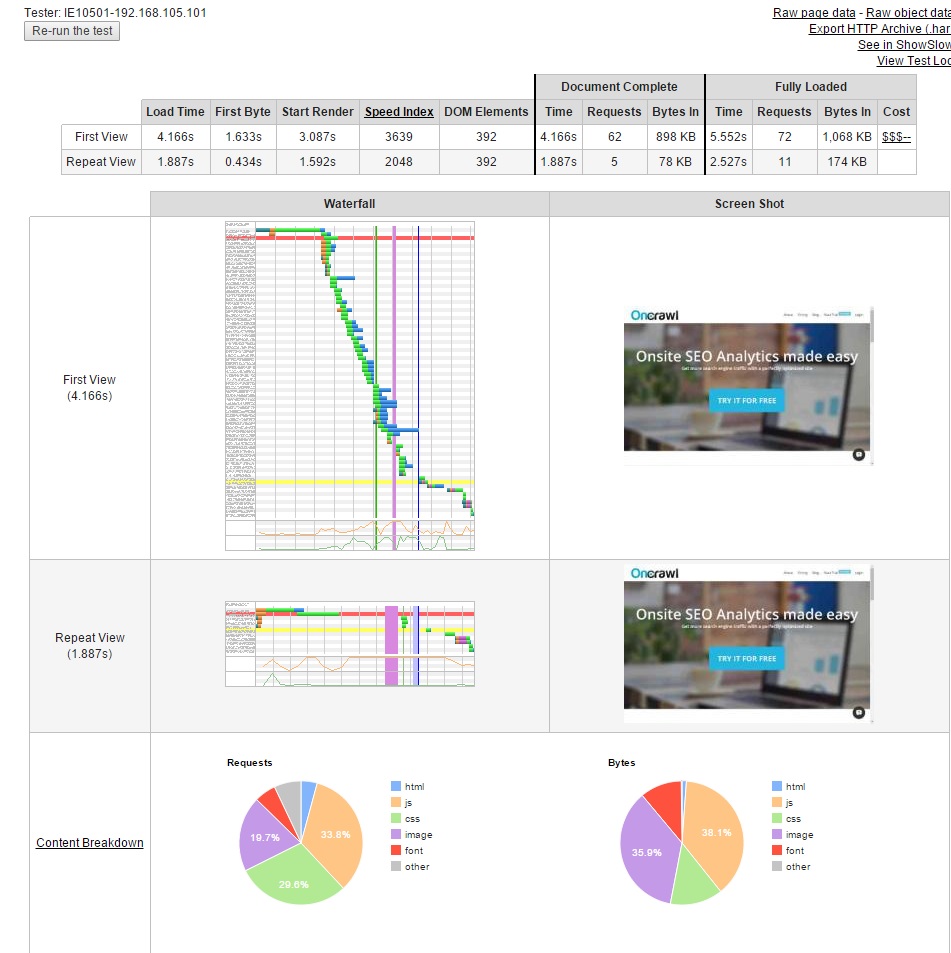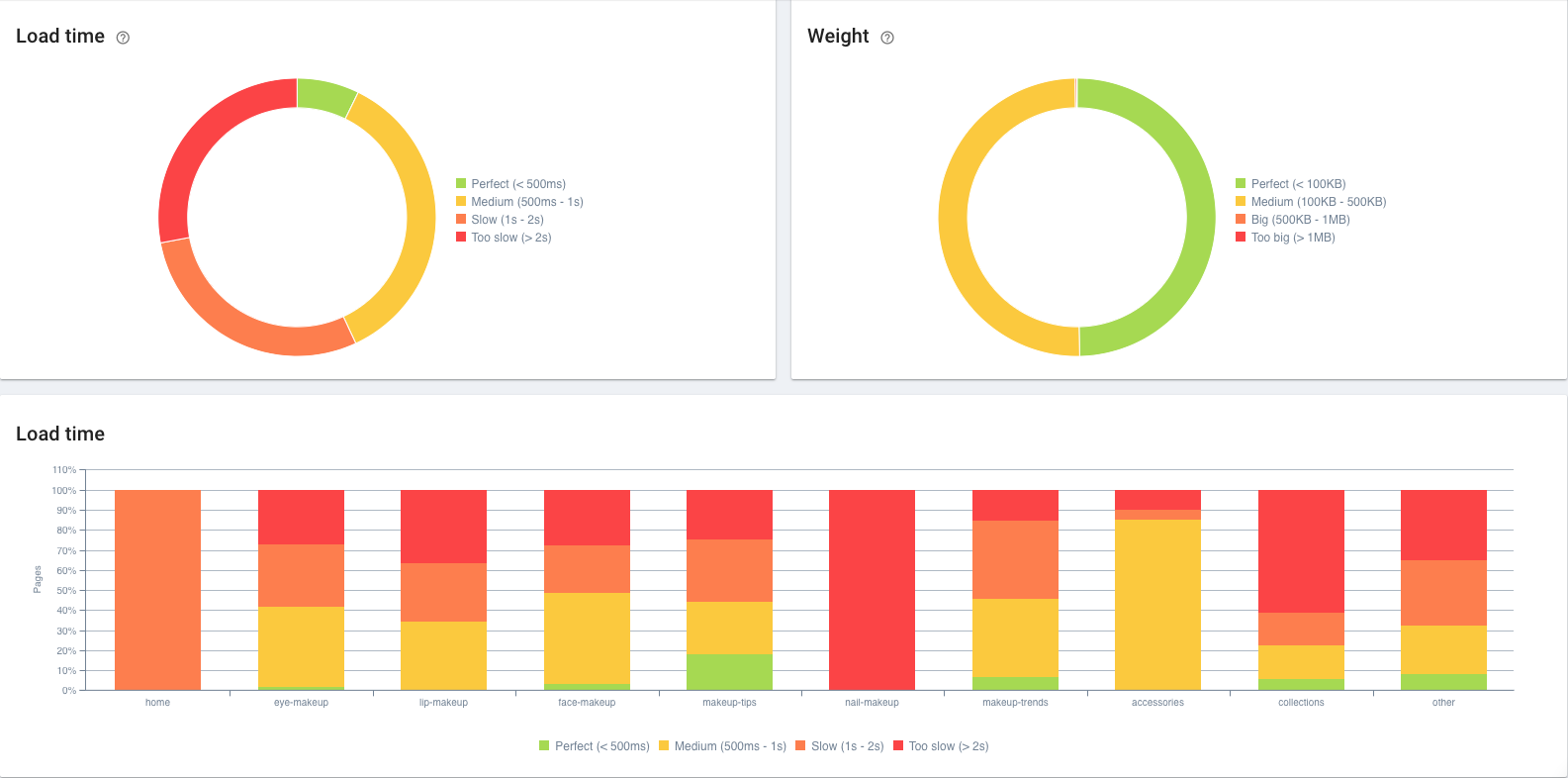In 2010, Google announced that page speed would impact your website ranking. It actually refers to the time a visitor have to wait until your page is completely loaded. On average, a page load for e-commerce website takes 7 seconds meanwhile the ideal load time is around 3 seconds or less.
As a matter of facts, it has an impact on your audience user experience. A bad UX can cost you a loss of revenue if your target have to wait too long to get what they are looking for. They will just close your website. And above all, a slow page load is penalized by the search engines and has an impact on your ranking, both on mobile and desktop devices. Google says:
“A search result for a resource having a short load time relative to resources having longer load times can be promoted in a presentation order, and search results for the resources having longer load times can be demoted.”
Actually, Google compares your site to your competitors on a specific segment and attributes a bonus point whether you are the fastest. But be careful, that marks is not given unilaterally : it takes in account the country, device or network.
So, there is a few factors you should focus on to improve your page speed.
What can lower your page speed?
- Your host: you get what you paid. In the long run, a cheap offer can damage your page speed. Pick the right host that fit to your business size.
- Too large images: images which are too heavy to load can really lower your page speed. It is often due to extra data included in the comments or to a lack of compression. Prefer PNG for images that do not require high details like logos and JPEG for photos.
- External embedded media: external media like videos are highly valuable but can largely lower you load time. To gain some load time, host the videos on your own server.
- Unoptimized browser, plugins and app: you should test your website on all browsers since they do not load your site in the same way. Moreover, apps like Flash can seriously lower your page speed.
- Too many ads: more than just bothering your visitors, lots of ads have the drawback to slow down your page speed.
- Your theme: some highly designed themes containing a lot of effects can penalized your load page.
- Widgets: some social buttons or comment areas can have an impact of your page speed.
- Double-barreled code: if your HTML/CSS is not efficient or too dense, it will lower your page speed.
What tools can I use to improve my load time?
There is a few tools you can use to improve your page speed or simply to see how your website is working.
Page speed Insights
This classic displays a page speed score between 0 and 100 and gives you all the keys and advices to improve your page load.

Webpage test
This Google tool offers a free speed test providing charts about page speed optimization.

YSlow
This plugin quickly shows you how your website is performing and gives you insights to improve your site speed.

YUI Compressor
This tool will help you compress your code by minimizing JavaScript and CSS.
Oncrawl
Our tool offers a clear overview of your page speed performance and help you know which pages you should optimize in a glance.



